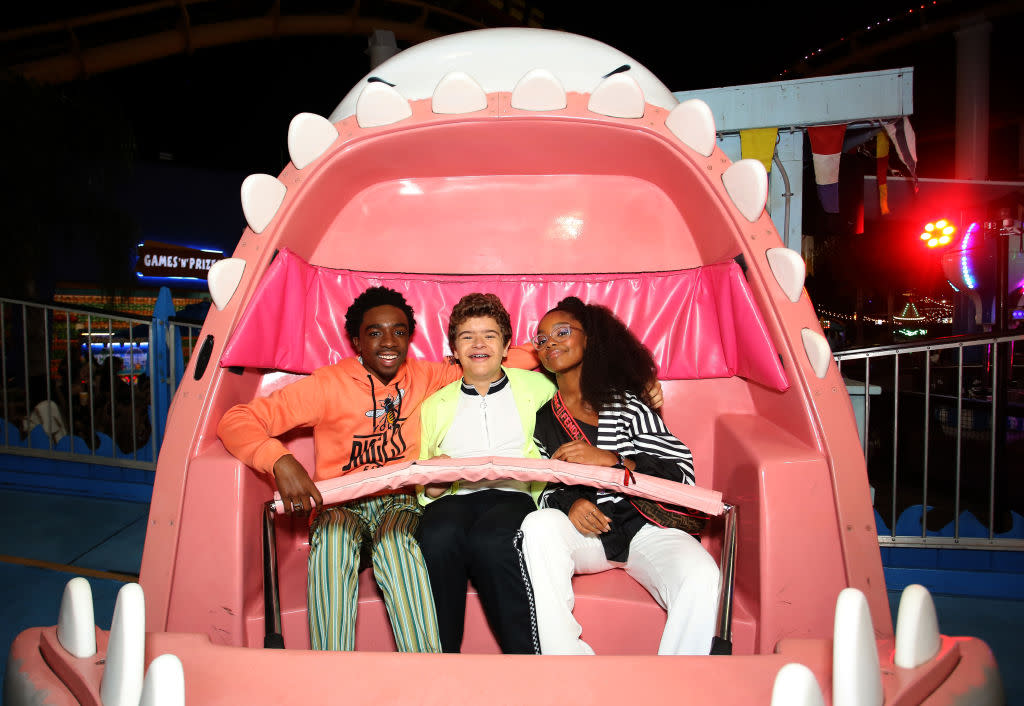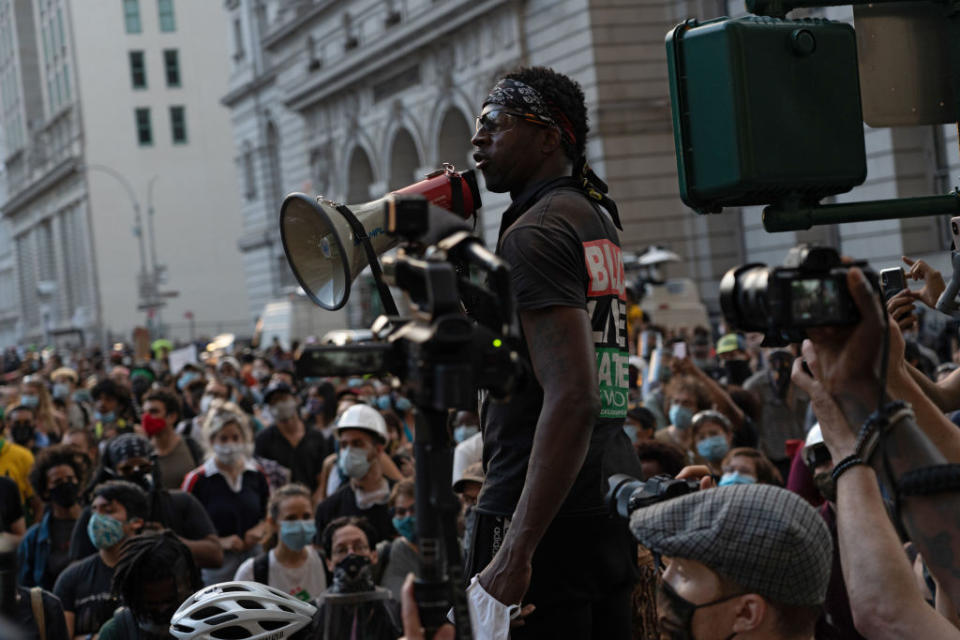How the coronavirus and this moment will affect the generations differently — especially Gen Z

As a kid, I couldn’t understand why my sweet, now gone grandmother was such a hoarder. She had bags and boxes full of things she’d never use — unopened food, garage sale treasures my mom’s middle school cheerleading uniform, to name a few — all over her house. It was only later that I realized she had always lived as if we were living in the Great Depression. The economic instability from that traumatic period of American history into which she was born stuck with her over the decades.
The experience all of us are going through now, with the global coronavirus pandemic and the nationwide protests against police brutality and systemic racism, will likely leave a mark on us, too.
Alan Kraut, distinguished professor of history at American University, tells Yahoo Life that this period of time will have considerable effects, especially when it comes to young people. Take the pandemic.
“It may well be the generation that’s experiencing this pandemic is a generation that’s going to have a much greater consciousness of taking shots, of health precautions, concerns about health insurance, availability and accessibility to doctors. I wouldn’t be surprised by that,” Kraut says. “They’re experiencing a trauma and for those who are younger, it is in many cases either their first or second trauma. The first being 9/11 and the second being this. For those of us who are a little bit older, it’s hardly the first, second or even third trauma. We’re the generation that went through Korea, Vietnam, the Cold War, the development of atomic weapons and the fear of them, as well as all the things that have happened subsequently. The Vietnam War was our war. So when my students ask me if I feel the same level of anxiety and sometimes hopelessness that they feel, the answer is no, I don’t. Not that I’m not afraid of the disease, because I certainly am, but simply because I’ve dealt with trauma before.”
In fact, generations expert Jason Dorsey says that the protests, for instance, will particularly affect Gen Z, which he defines as those born from approximately 1996 to 2015.
“We believe these racial injustice protests will be a generation-defining period for Gen Z, as they are the first widespread protests in which Gen Z has witnessed and often supported or even participated in,” Dorsey notes. “Gen Z is also starting to see them as creating a sense of results, even if the results are viewed as not enough, from impacting politics and national media conversations to changing advertising and social commitments.”

When it comes to the coronavirus, Dorsey has further found that the older members of that group are especially suffering. They’re the people who’ve been in the workforce for a few years, so they’re out on their own, but they haven’t had time to build up their savings yet. (This doesn’t apply to younger Gen Z-ers who are just entering college and can typically adapt their plans for the future pretty easily.)
“Gen Z was already frugal, based on our research,” Dorsey says. “They’re going to be much more practical with their money now.”
But he’s already seen one bright spot for the same group, at least for those born at the end of the cohort.
“Right now, it’s obviously extremely challenging and frustrating and painful, but the reality is you could have a younger part of the generation that becomes very accustomed to learning online, collaborating online, accessing information and being able to take that and then apply that as they get older into the workforce, higher ed, you name it,” Dorsey says. “So all of a sudden it’s gonna be normal for them to collaborate, solve problems and engage using a variety of different technologies, which would not have happened if this horrible pandemic had not happened.”

As for other generations, Dorsey points out that Gen X (birth years 1965 to 1976) will especially prize stability and the ability to work from home after spending the last few months torn between kids, parents and their job. Millennials, born between 1977 and 1995, are rethinking their chosen career path. Meanwhile, Dorsey’s research showed that many baby boomers, which he classifies as those born between 1946 and 1964, have had to rethink or postpone retirement, even dipping into their savings.
Dorsey believes institutions will be affected in major ways, too, from schools to health care to police.
“So these are the types of things that happen during what we call a generation-defining moment, which this is, [that] really changes you and your view of the world. You remember where you were, what happened, how you felt and you carry that forward with you,” Dorsey says. “So for millennials, it was 9/11. Let’s say for baby boomers, it could’ve been a variety of things, from assassinations to landing on the moon to the Cold War, but the idea is that this is going to stay with Gen Z, and while this is really an awful experience for every generation, it’s a generation-defining moment only for Gen Z.”
Read more of Dorsey’s research about generations on his blog.
For the latest coronavirus news and updates, follow along at https://news.yahoo.com/coronavirus. According to experts, people over 60 and those who are immunocompromised continue to be the most at risk. If you have questions, please reference the CDC’s and WHO’s resource guides.
How to maintain your physical and mental health during the pandemic
Taking care of a loved one with COVID-19? Here’s how to stay healthy
Q&A with Dr. Kavita Patel: How to keep your family safe and maintain your mental health
Read more from Yahoo Life:
People who oppose wearing face masks have created fraudulent government 'exempt' card
Why you might see a ‘COVID-19’ fee on your next restaurant or hair salon bill
Want daily lifestyle and wellness news delivered to your inbox? Sign up here for Yahoo Life’s newsletter.




